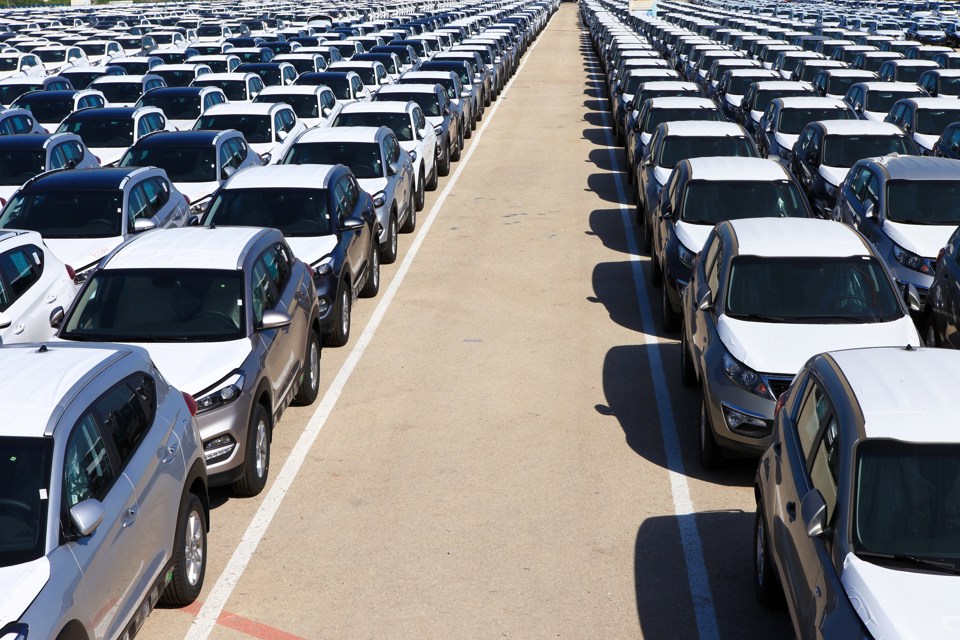The FN50 has surpassed 1.5 million cars and vans for the first time in its 23-year history.
At 1,564,501, it tops the previous record of 1,494,460 in pre-recession 2008 by a little more than 70,000. It also represents an 11% rise compared to 2015, or 157,313 vehicles.
There is a caveat: the total includes contract hire and finance lease. Why does this matter? In many – but not all – cases, the residual risk for finance lease sits with the fleet, not the leasing company. Alphabet is an exception, for example; it holds all the risk.
Last year, we sought to distinguish between the two and remove all non-risk finance lease from the figures to ensure the FN50 focused on the biggest risk-fleet leasing companies in the UK.
However, this in itself created an anomaly, not least when comparing to previous years where some companies included finance lease and others didn’t, so we have decided to include all forms of finance funding in the FN50: it, therefore, becomes the top 50 largest funders of vehicles to more accurately represent the market.
Within the mix are the details of finance type. Contract hire, where the funder takes the risk, still tops 1.5m when the 49,000 salary sacrifice cars are included – on a strict like-for-like basis over 2015, therefore, it shows grow of 6.7%.
The full funding total consists of 1,201,943 cars and 362,558 vans, a split of 3.3 cars to every van. That has softened slightly over the past five years – in 2011 the ratio was 3.5 cars to every van.
Finance lease accounts for 21,799 cars, 1.8% of the total. It is a more popular form of funding for vans, accounting for 41,488 or 11.5% of the total.
Much of the growth has occurred at the head of the listing, with the top five now accounting for 60% of the total after expanding their collective fleet sizes by 18%. Trailing some way behind are leasing companies placed six to 10 with collective growth of 9% for a 21% share of the FN50. Combined, the top 10 now accounts for 81%, up from 78% in 2015.
Most other groups has seen their collective fleet sizes fall, notably those placed 31-40, down 9% and those placed 41-50, down 17%. Indeed, for the first time, the FN50 has three leasing companies funding fewer than 1,000 vehicles. Last year there was one.
The direction of travel is clear: the biggest leasing companies are getting bigger while the rest of the FN50 is consolidating, fighting to retain existing customers or focusing on particular specialisms, whether vehicle (such as vans) or industry segment (e.g. Essential Fleet Services and local authorities).
Some 35 leasing companies have grown their fleet size, although 11 by less than 3%. Nine of the top 10 have expanded (exception was Arnold Clark, down 1.7%) – six by double digits.
The biggest growth, certainly in numbers, is Arval. It was also responsible for the biggest leasing story of recent years when it acquired GE Capital Fleet Services in Europe, including 28,000 of its risk fleet in the UK.
That took the company to 138,000 vehicles late last year, since when it has continued to grow organically, reaching 157,000. Leapfrogging Alphabet to move into third spot, the gap to second-place LeasePlan has narrowed from almost 37,000 to just 8,678 vehicles.
The only other movements in the top 10 are ALD and Volkswagen Financial Services, who swapped places (VW moving up to fifth) and Citroën Contract Motoring, which moves into the top 10 after a 24% rise in its funded fleet, replacing GE Capital.
Lex Autolease remains the UK’s largest leasing company for the 14th consecutive year (previously as Lex Vehicle Leasing or Lloyds Autolease), after a 14.4% rise in its funded fleet. The company has outlined its aspirations to grow in the van fleet sector after signing a deal with Balfour Beatty in 2014 to take management and funding responsibility for its complex van fleet.
Consequently, it’s no surprise to see that its van fleet has grown the quickest, up 27% to 90,970 versus cars up 10% to 242,068. SME finance has helped to fuel the car side, another growth target for the business.
Lex Autolease’s five-year plan is to reach a funded fleet of 375,000 by 2017, which represents growth of 100,000 over 2012. It’s in with a shout after topping 333,000 in this year’s FN50 with a rise of almost 42,000 vehicles.
The fastest growing leasing company in percentage terms is Fiat-owned FCA Fleet Services, whose 2,569-unit rise represented a 53.4% increase, moving it from 31st to 24th. Almost all the growth came from cars, which rose from 4,386 to 6,902, underpinned by Fiat’s increase in fleet registrations over the past 12 months – up almost 81% to end user fleets (7,108 units) as its registrations to leasing companies were pegged back by 9% (453 units)
FCA’s growth was typical for the manufacturer-owned leasing companies. Of the eight in the FN50, seven increased their fleet sizes year-on-year; the exception is BMW, which shrank by a third, despite selling more cars to fleets this year.
However, BMW’s corporate funding is channelled through its Alphabet operation; BMW Financial Services provides funding for fleets and SMEs via the dealer network.
In response to a request by several leasing companies, Fleet News added a new question on the business split for cars between fleet/business and retail/private. The FN50 average is 87% fleet to 13% retail.
Unsurprisingly, manufacturer-owned contract hire companies tend to have the biggest proportion of retail business – more than half (56%) of FCA’s funded business is in the private sector, for instance, while all of BMW Financial Services’s is retail (which includes its dealer-based SME portfolio).
Two top 10 leasing companies have a large proportion of retail business: ALD (39% retail), which is the partner for several manufacturer white label schemes selling finance via franchised dealerships, and LeasePlan (42.9% retail) although, in its case, retail refers to its broker channel which incorporates SME and retail.
Eighteen of the 44 companies which provided figures fund 100% of their vehicle fleets into the corporate market.
Employee car ownership schemes (ECO) appear to be in terminal decline – just eight leasing companies in the FN50 fund cars in this way.
However, Alphabet disagrees. It has 62% of the ECO total, at 10,339, and claims that affinity schemes are on the rise.
Jon Burdekin, Alphabet head of product management, puts the case: “It’s not a lease and, although it looks like a company car, it isn’t. If the employee owns the car, it cannot be deemed to be a company car and so it does not attract BIK.”
The outcome of the Government consultation on salary sacrifice was not known as the FN50 report went to press, but, should HMRC change the tax regulations regarding salary sacrifice cars, a number of leasing companies have a lot to lose, including Tusker, Zenith, LeasePlan and Hitachi.
Tusker funds the largest proportion of the 49,000 salary sacrifice cars in the 2016 FN50. Its 16,628 units represent 89% of its total car funded fleet. Zenith is close behind on 12,730, partly a legacy of its merger with Leasedrive in 2014, but its risk is much lower, at 28% of its car fleet.
Just four other leasing companies have four-figure salary sacrifice fleets: Lex Autolease (2,420), Alphabet (2,193), Inchcape (1,600) and SG Fleet, whose 1,367 is 19% of its car fleet.
The big battleground over the next couple of years will be light commercial vehicles; this year van-funded rose by 23% (compared to cars up 8%).
As Government figures forecast a van parc of as much as six million by 2020, according to reports, it’s clear why this part of the market has a lot of appeal to leasing companies.
The full FN50 table is here.






















Login to comment
Comments
No comments have been made yet.